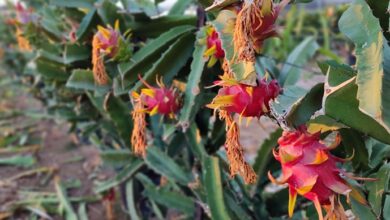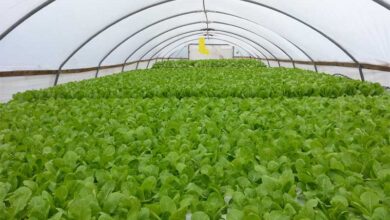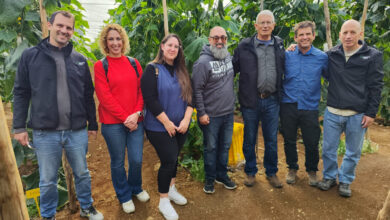Genesis Seeds: Development of Sunflower Varieties Adapted to Changing Climate Conditions

Climate crisis
Sunflowers are hardy, sun-loving plants that thrive in various soil types, as long as they are not waterlogged. With roots tracing back to archeological sites from 3,000 BC, sunflowers were first cultivated by Native Americans for medicine, fiber, seeds, and oil. European settlers quickly recognized their value, introducing them to Europe, where they gained popularity in gardens and art.
In recent years, sunflowers have gained popularity as ornamental plants, with new varieties developed specifically for home gardens. Their deep roots make them drought-tolerant, but regular watering during the critical growth period around flowering is essential. While they don’t require much fertilization, a slow-release fertilizer in poor soils can boost flower size. Taller varieties benefit from staking to prevent damage from wind and rain.
Sunflowers’ resilience and beauty remain a favorite in rural landscapes and home gardens.
Genesis Seeds company has been producing and marketing sunflower varieties for both home gardening and professional picking (such as the Zohar variety). Among the sunflower varieties for home gardening, the following stand out:
1. Goldy Double, F1– This unique variety features a charming pom-pom or “teddy bear” style, making it a delightful addition to any garden. Season- Year-round | Days to maturity 60-65 | Flower Diameter (cm) 10-12 | Height (cm) 120-140
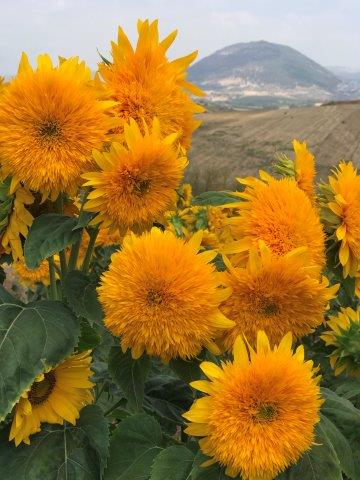
2. Golden Ray, F1 – A multi-flowered variety that produces numerous blooms, providing vibrant color and beauty. Season- Year-round | Days of maturity 60-65 |Flower Diameter (cm) 5-10 | Height (cm) 140-170
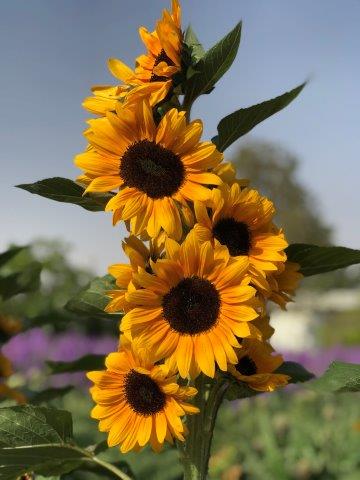
3. Jerusalem Gold – A classic, simple sunflower with beautiful golden petals and stamens that attract bees, evoking the charm of traditional sunflower fields. Season – Summer | Day of maturity 50-55 | Flower Diameter (cm) 10-12 | Height (cm)120-130.
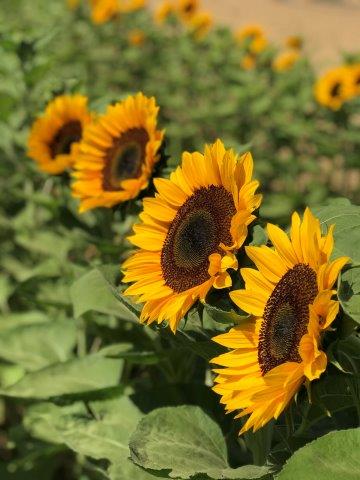
In recent years, as awareness of the climate crisis has grown and extreme weather phenomena have become more common worldwide, seed companies have faced an urgent need to adapt their varieties to these changing conditions. Once temperate areas may now experience extreme heat or cold, requiring new approaches to ensure that both commercial growers and home gardeners can continue to cultivate and enjoy their crops.
Genesis Seeds, a longstanding company specializing in developing and producing organic herbs, vegetables, and flowers, is addressing these challenges.
In response to the growing demand for varieties that can thrive in colder climates, Genesis Seeds recently launched two new sunflower varieties that can thrive in low temperatures and at the edge of the growing season, allowing farmers to add an extra growing cycle to their schedule. named:
Winter Zohar, F1 – (Helianthus annuus) | Season: Winter | Days to maturity: 50-55 | Height (cm.): 130-150 | Ave. seed/gr: 18
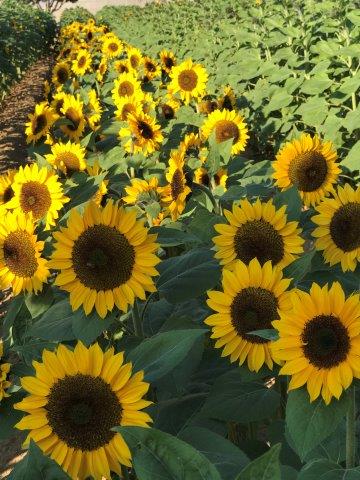
Nakdi, F1 – (Helianthus annuus) – Season: Year-round, Days to maturity: 45-50, Height (cm): 100-140, Average seed/gr: 18 An ideal sunflower for cut production, this Zohar hybrid elongates in short days or cold fall-winter temperatures. It features orange petals and a dark disk.
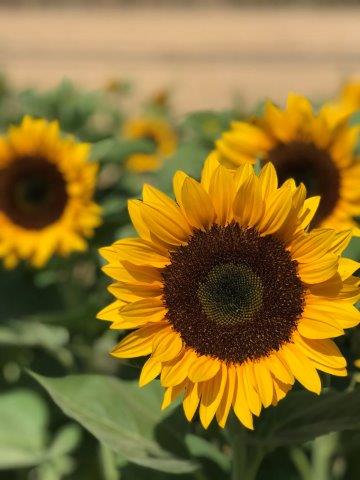
As a company that has been leading research and development in the field of basil for several years, Genesis Seeds is also responsible for the Prospera and Prospera Active basil varieties. These varieties are renowned for their resistance to Downy Mildew (DM) while maintaining the high quality, aroma, and taste that customers love and expect.
Genesis Seeds‘ commitment to its customers worldwide is unwavering. Through continuous research and development, the company is dedicated to producing sunflower varieties that meet the challenges faced by growers, ensuring that they can continue to cultivate and enjoy their harvests in an increasingly unpredictable climate.

